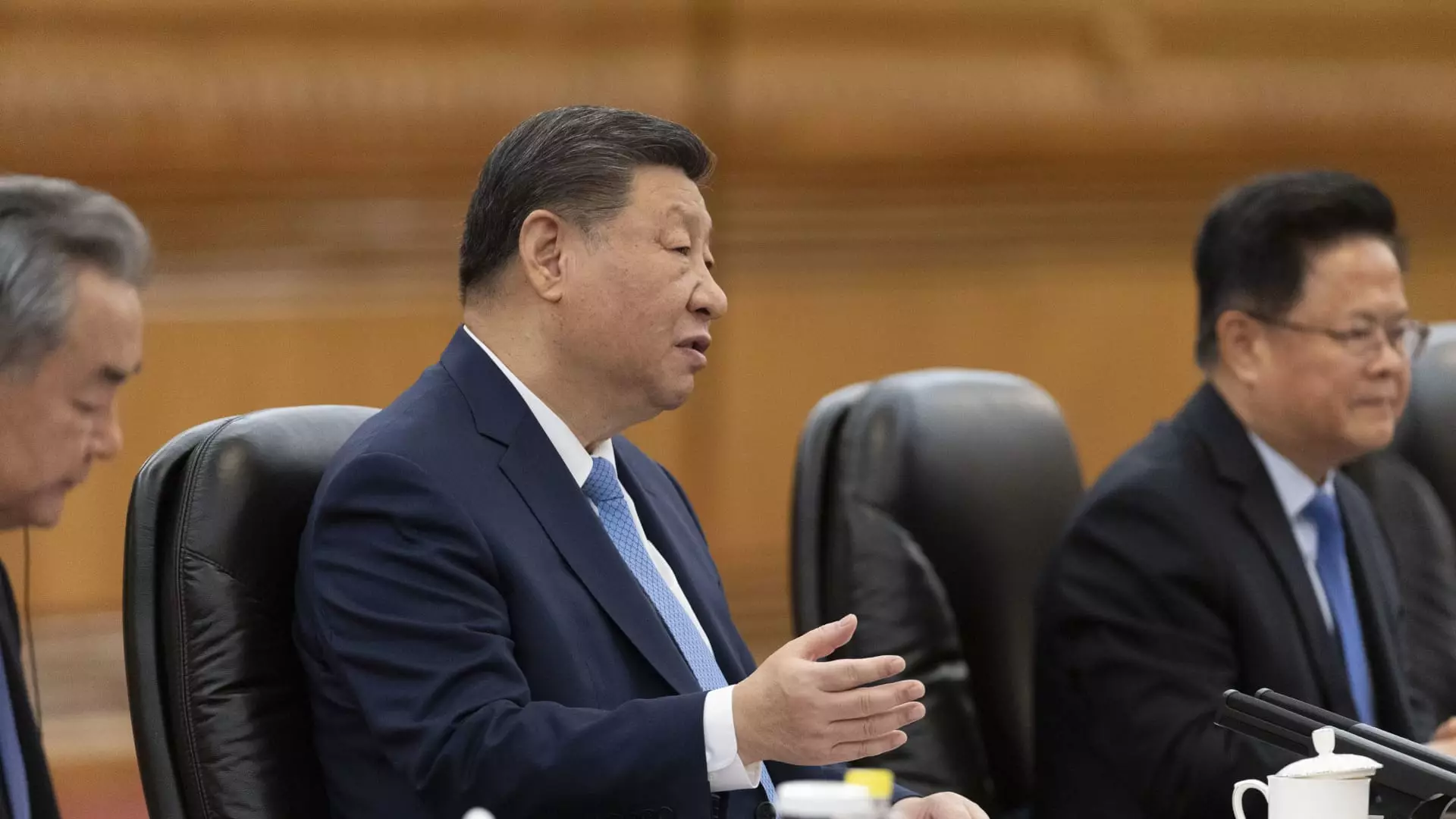On a day that could mark a pivotal moment in the Chinese economy, President Xi Jinping convened a symposium with leading entrepreneurs. This gathering comes at a time when the private sector in China has faced years of stringent regulations and economic stagnation. State media, particularly Xinhua, emphasized the importance of this meeting, framing it as a crucial signal of the government’s newfound commitment to bolstering private enterprise. Notably, this symbiosis between state and entrepreneurship has significant implications for Chinese economic policy moving forward.
The statement from Peiqian Liu of Fidelity International underlines how this meeting could serve as a catalyst for renewed optimism within the Chinese private sector. Economic actors often rely on signs from policymakers to guide their investment decisions and operational strategies. Liu suggests that the support conveyed in this meeting might unleash unprecedented levels of entrepreneurial spirit—an effect that may rival or surpass traditional fiscal stimulus measures. This potential resurgence could empower entrepreneurs to innovate and expand, essential elements for the rejuvenation of China’s economy.
The backdrop to Xi Jinping’s dialogue with entrepreneurs is a landscape marked by sluggish domestic consumption and a downturn in the real estate market. Additionally, heightened tariffs on exports pose external threats. With these challenges entrenched, the dialogue carries a sense of urgency; it reflects the realization among policymakers that the private sector will play a crucial role in turning the tide. The emphasis on supporting entrepreneurs reveals an understanding that the vitality of China’s economy hinges on the resuscitation of consumer confidence and investment.
A Symbolic Turning Point
Experts like Lynn Song from LNG have articulated that this moment could symbolize a turning and perhaps even a shift in regulatory posture, particularly towards technology companies that have faced intense scrutiny over the last two years. Andy Maynard from China Renaissance reinforces this notion, suggesting an end to the regulatory “overhang” that has burdened the sector. This perspective indicates a cautious yet hopeful reconceptualization of the government’s relationship with tech giants, piquing the interest of investors and entrepreneurs alike.
One notable mention was the speculation around Jack Ma’s presence at the symposium, a figure emblematic of the tech sector’s trials and tribulations. Should Ma engage with the government and reemerge as an influential voice, it could validate the sentiment that the government is easing its rigid stance on major tech entities. Such a shift could invigorate the market, reflected in how investors might react to the overall performance of indices like China’s CSI 300, which remained stable following the news.
The recent symposium led by President Xi Jinping signals a potential dawn of a new era for entrepreneurship in China. As the country grapples with multifaceted economic challenges, this renewed emphasis on supporting the private sector could foster a fertile environment for growth and innovation. If policymakers continue to demonstrate a commitment to this cause, we may witness a renaissance of entrepreneurial activity that could redefine the landscape of the Chinese economy for years to come.

